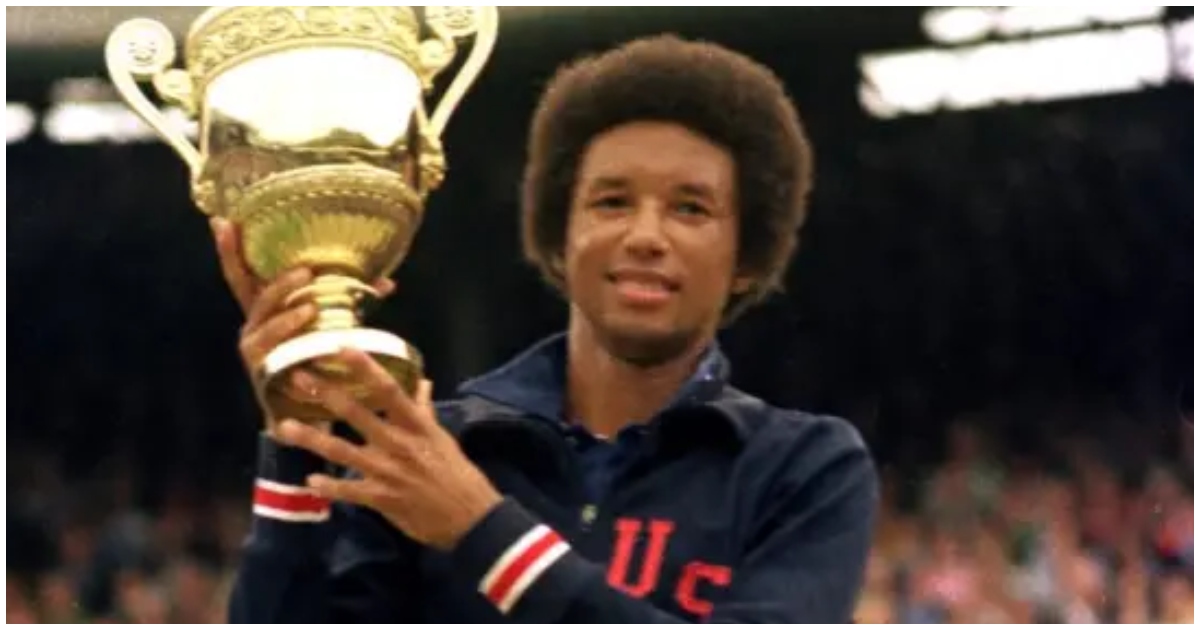Groundbreaking Victory at the All England Club
In 1975, Arthur Ashe etched his name in tennis history. He defeated Jimmy Connors to become the first Black man to win the Wimbledon singles title. This victory marked a pivotal moment in both tennis and civil rights history.
Ashe’s triumph came as a surprise to many in the tennis world. At 31, he was considered past his prime. His opponent, 22-year-old Jimmy Connors, was the defending champion and heavily favored to win.
Despite the odds, Ashe executed a brilliant strategy. He served strongly and used a mix of “junk” shots to disrupt Connors’ game. This unexpected approach proved highly effective against the younger player.
Arthur Ashe’s Journey to Wimbledon Glory
Ashe’s path to Wimbledon success began in Richmond, Virginia. As a young boy, he showed exceptional talent in tennis. His skills earned him a scholarship to UCLA, where he honed his abilities under tennis star Pancho Gonzales.
In 1968, Ashe broke barriers by becoming the first Black man to win the U.S. Open. He followed this with an Australian Open victory in 1970. However, the Wimbledon title remained elusive until his historic 1975 win.
Ashe’s Wimbledon victory was more than just a personal achievement. It represented a significant step forward in the fight against racial discrimination in sports.
The Match That Made History
The 1975 Wimbledon final was a clash of contrasting styles and generations. Ashe, the seasoned veteran, faced Connors, the brash young champion. Their previous encounters had all ended in Connors’ favor.
Ashe’s strategic approach caught Connors off guard. He won the first set 6-1 in just 20 minutes. Although Connors fought back to win the third set, Ashe maintained his composure and focus.
In the end, Ashe clinched the victory with a 6-4 win in the fourth set. The shocked crowd cheered as he made tennis history on Centre Court.
Legacy Beyond the Tennis Court
Arthur Ashe’s impact extended far beyond his Wimbledon victory. After retiring from competitive tennis in 1980, he became a prominent author and activist. His three-volume book, “A Hard Road to Glory,” chronicled the struggles of Black athletes in America.
Tragically, Ashe contracted HIV from a blood transfusion in 1983. After revealing his diagnosis in 1992, he dedicated himself to educating the public about HIV and AIDS. He passed away from AIDS-related complications on February 6, 1993.
Today, Ashe’s legacy lives on. The main stadium at the U.S. Open bears his name. His life and career continue to inspire athletes and activists around the world.





